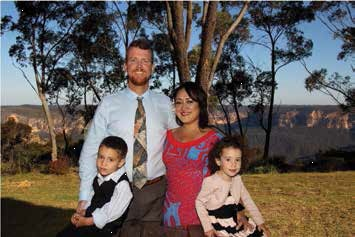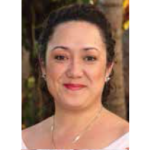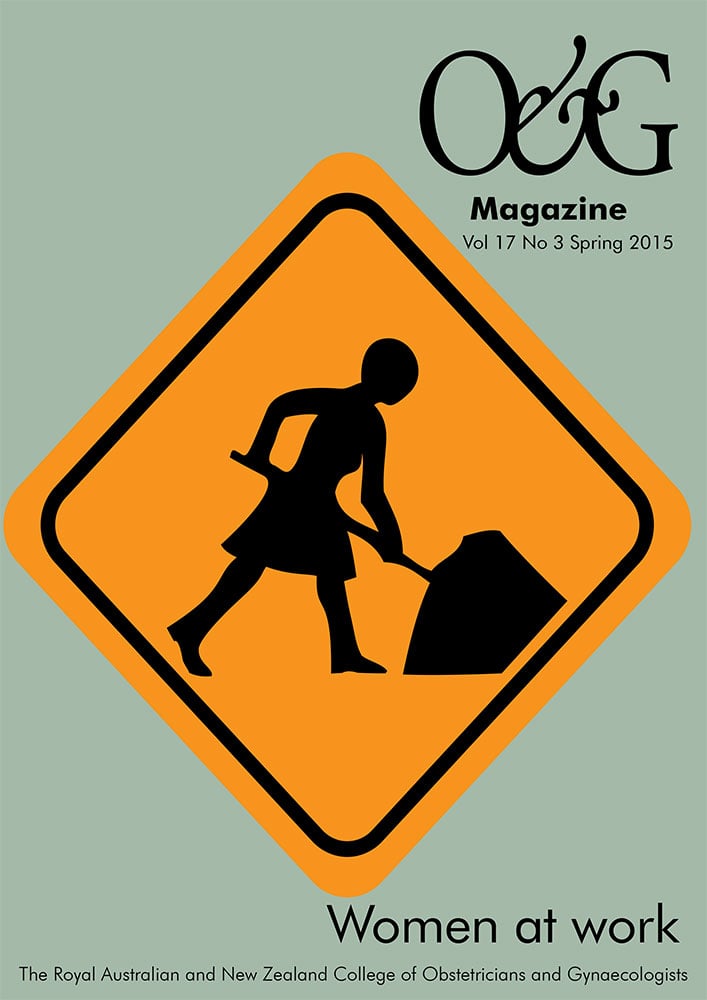I am a Pacific Island obstetrician and gynaecologist. I obtained my degree in 2005, and was registered as a specialist in 2007. I currently work as a consultant and assistant professor for the Fiji National University’s College of Medicine, Nursing, and Health Sciences (FNU, CMNHS) at the Lautoka Hospital Medical Campus. I am mother to four-year-old twins and have a very supportive and loving husband.
he eldest of five siblings, I was born in Fiji but grew up in the Cook Islands. My parents live in the Cook Islands and my siblings live in Australia. Dad is a Cook Islander and retired surgeon. Mum is Fijian-Chinese and is an early childhood educator. Education was a big part of our lives and my parents were insistent that we complete our education so that we would be able to support ourselves and be independent. I grew up with that mentality of needing to complete school in order to be successful and happy. My mentality is different now. Life is not so compartmentalised and simple. I have grown to realise one never stops learning, success has different meanings to different people and happiness is personal.
The islands are a beautiful place to grow up. This is one reason why my husband and I have decided to remain in the Pacific to raise our children. We both grew up in the islands. My identity is that of a Pacific Islander: I know the language, the customs and the dance of my father’s people. I have a similar knowledge of my mother’s cultures. Despite experiencing the cultural prejudices of older relatives favouring our brothers and educationists doubting our abilities because we were girls, my sister and I grew up in a home environment that promoted equality with regards to education and opportunity, and household chores.
Our culture can be both supportive and counterproductive. Interwoven into most Pacific Island cultures is Christianity. The combination of culture and Christian faith plays an important role in my line of work. In some instances, it provides a supportive structure or coping mechanism for women and their families who have had an adverse obstetric or gynaecological outcome. Some may be so accepting of an outcome that they simply say: ‘it was God’s will’. Similarly, another situation that requires available medical intervention to avoid an adverse outcome may be met with the response ‘we will leave it up to God’ and medical intervention is declined. These instances require a great deal of patience, tact and reflection.
My undergraduate and postgraduate training was done at the Fiji School of Medicine, now called the Fiji National University. My Diploma in obstetrics and gynaecology was from the University of Auckland, New Zealand. I got this after failing twice. Lifelong friends were made during these years of training. As students we were treated relatively well and fairly by most medical and nursing staff; however, I recall, with little fondness, the males being favoured over the female students, particularly during attachments to the maternity units. The medical workforce at the time seemed to be predominantly male. There appears to be a slight shift in the gender balance nowadays and current FNU College of Medicine, Nursing and Health Sciences enrolment records a 60–66 per cent female intake.
After getting my specialist degree, I remember vividly a moment of overwhelming panic and despair. There were expectations of me to perform as a successful specialist, to role model professional behaviour, make a ton of money, find a suitable life-partner and have children. I made a conscious decision then to put all that on hold and went to work in Christchurch, New Zealand, for six months. Watching the rugby was an added bonus.

The author with her family.
The Lautoka Obstetrics and Gynaecology Unit currently has nine female registrars, five female academic faculty, one private female specialist and two male consultants. Of the nine female registrars: two have completed postgraduate training, four are current trainees and the remaining three registrars hope to get on to the training program in the next year or two.
My academic duties require me to supervise and mentor undergraduate and postgraduate trainees in the field of obstetrics and gynaecology. In addition, I supervise international elective students, including James Cook University fifth-year medical students during their Fiji obstetrics and gynaecology rotation. Recently, Cuban graduates from other Pacific Islands have returned home and I was part of an FNU team that travelled to Kiribati every three months to conduct their internship assessments. During my time with the University I have been well supported and mentored and, as a result, have obtained a Graduate Certificate in Medical Education; been appointed the position of Adjunct Lecturer in the College of Medicine and Dentistry at the James Cook University, Queensland, Australia; and been invited to participate on two RANZCOG Committees the Asia Pacific and Global Women’s Health Committee and the CPD Program for O&G Specialists Advisory Committee. Later this year I hope to use an academic scholarship awarded to me by RANZCOG to further complement my clinical experience by attending the Anatomy of Surgical Complications Workshop in Perth in September.
My clinical duties involve conducting 7:30am teaching handover rounds for the unit, supervising obstetric and gynae ward rounds, antenatal and gynaecology clinics, elective gynae surgery, and doing a one-in-three consultant on-call duty roster. A recent on-call shift at 2am one Thursday morning involved devising a balloon tamponade using a condom, 16F Foley balloon catheter, feeding tube and normal saline to manage the atonic uterus of a 16 year primigravida who had delivered twins vaginally four hours earlier at a subdivisional hospital an hour away. I then managed to return home to have breakfast with the family before the twins headed off to kindergarten and then back to work for 7:30am handover rounds.
In 2012, the Fiji Obstetrics and Gynaecology Society (FOGS) was born. Since then it has held two annual scientific meetings that have been well attended by local and international participants involved in reproductive health in the Pacific. I am the Secretary and Treasurer for the Society.
The three roles I have as academic faculty, hospital clinician and Executive member of FOGS are well served when it comes to organising and participating in workshops and conferences in Fiji and around the Pacific. Examples of these have been ultrasound scan, laparoscopy and basic surgical skills, protecting the perineum in childbirth and perineal repair, intrapartum care, and emergency obstetric and neonatal care workshops. Most of these have involved overseas specialist facilitators or travelling to other Pacific Islands to facilitate workshops.
It is no easy feat juggling work and family commitments. There is no formula or app for this. Every professional wife, mother, clinician and academic has their own strategy or recipe for managing all their commitments. Perseverance, personal strength, a supportive partner and family, a supportive working environment and the confidence to accept that one cannot always be in control of everything all the time certainly helps. A quote I came across recently by the CEO for the Global Women’s Fund, Kavita Ramdas says: ‘We need women who are so strong that they can be gentle, so educated that they can be humble, so fierce that they can be compassionate, and so disciplined that they can be free.’ This sums up the qualities I believe are necessary for me to manage my juggling act as a Pacific Island working woman.






Leave a Reply